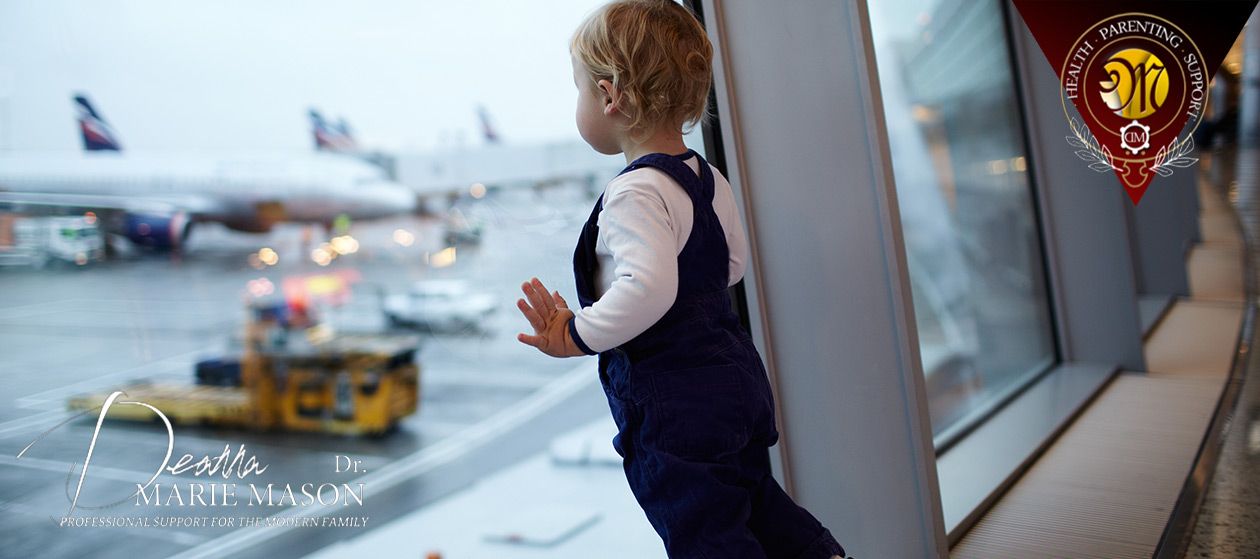This knowledge can be horrifying for parents when they must fly with their infant or small children. Luckily, having some basic information and a good dose of humor will help parents navigate air travel with infants and small children successfully. There is no need to feel overwhelmed or shamed. Information can help make everything easier.
Why do babies cry when they travel by plane?
Persistent crying is often the trigger that disrupts travel. Statistically speaking, most infants and small children are quiet and comfortable during flights. However, there are times when little ones fall outside the norm and cry inconsolably. These are the situations when the horror stories are written, especially if it is your child crying!
Although there is no hard data on why some infants cry continuously on flights, it is thought to be from an overall merging of many factors at once – something like a perfect storm. Infants and small children thrive on routine in familiar surroundings. Travel upsets all of that. New locations, odd flying hours, changes in time zones, different smells, lots of new faces, strange noises, and uncomfortable sleeping positions can add up to a major melt down.
Infant and child temperament also plays a large part in why some infants and children have prolonged crying on planes. Some children are sensitive to stimulation, such as light, noise, and smells, which leads them to be over-stimulated easily and can prompt crying. Normally these children cry frequently at home as well as while traveling. Unfortunately, the normal tricks parents develop at home to manage the crying may not be available while traveling and thus the infant cries longer on a plane.
So what can parents do to help crying babies and small children?
Here are a few good practices to make the flight as enjoyable as possible for your baby:
- Do not try to sedate the child in any way.
- There are wives tales of rubbing whiskey on a baby’s gums or giving children antihistamines (such as Benadryl) to invoke sleep. These activities have not been researched for safety and may have negative effects on the infant or child.
- Do not overfeed an infant or child before a flight in hopes of inducing sleepiness.
- The gut expands from pressure changes in the plane while flying. Having an overfull tummy may cause gassiness or indigestion resulting in stomach pain.
- Feed to avoid hunger but avoid sugary foods and snacks.
- It may seem enticing to offer cookies, fruit drinks, or candy to bribe a small child into behaving for a while. Unfortunately, this normally causes a sudden energy release as all the sugar goes into the bloodstream and then a rapid drop in blood sugar that can cause fussiness, crying, and tantrums.
- Whole fruit, cheese sticks, and whole-grain crackers are portable and provide nourishment while avoiding rapid changes in blood sugar levels.
- Try to recreate a home sleeping environment to provide comfort.
- Bringing a familiar sleep object, such as a blanket or stuffed toy, can help increase feelings of security.
- Use of these objects during takeoff and landing are helpful.
- Provide a method to equalize ear pressure during takeoff and landing.
- Use of a bottle, the breast, pacifier, or teething ring can help little ones relieve pressure in their ears.
- Consider changing flight dates or not flying with infants or small children that have an ear infection or respiratory infection. Pressure changes in the plane may cause severe pain to infected ears or congested chests.
- Parents need to stay calm too.
- Anxiety spreads like wildfire. When mom or dad is nervous, anxious, or worried, this can spread to their infant or small child.
- Apologize to the other passengers and explain you are doing everything possible to calm your baby. That is enough. Let go of the guilt.
Flying with infants and small children is a facet of modern life. The good news is that most infants and small children fly through with sailing colors. For others, the disruptions to their schedules and new sensations can create intense crying. Parents can make plane travel easier by understanding, preparing, and managing the situation if it arises. Most importantly, no matter how bad a particular flight may be, you will have a great story to put in your child’s baby book.
About the instructor
Proactive Parenting
Deanna Marie Mason PhD
More than 20 years of clinical experience helping families:
Bachelor's Degree in Registered Nursing, Master’s Degree in Pediatric Nurse Practitioner and PhD in Nursing. University professor, patient education specialist, pediatric researcher, published author and reviewer to first-line international scientific journals, continuous philanthropic activity related to health promotion and education, wife and mother of two children.






